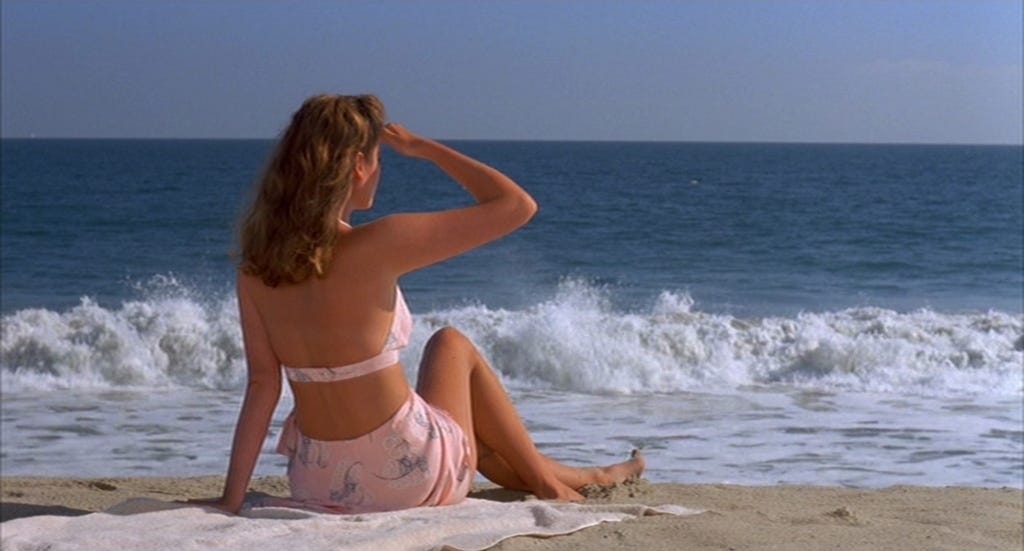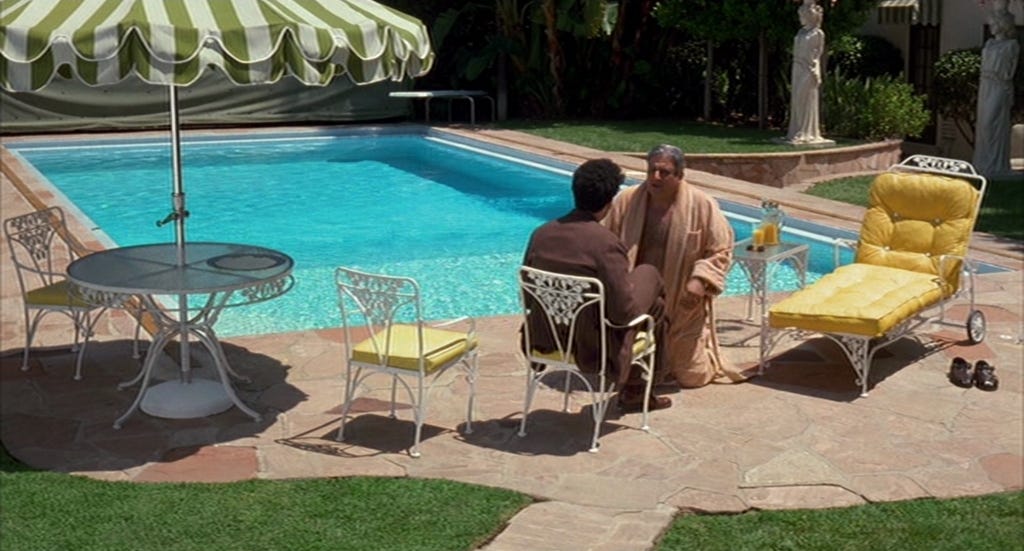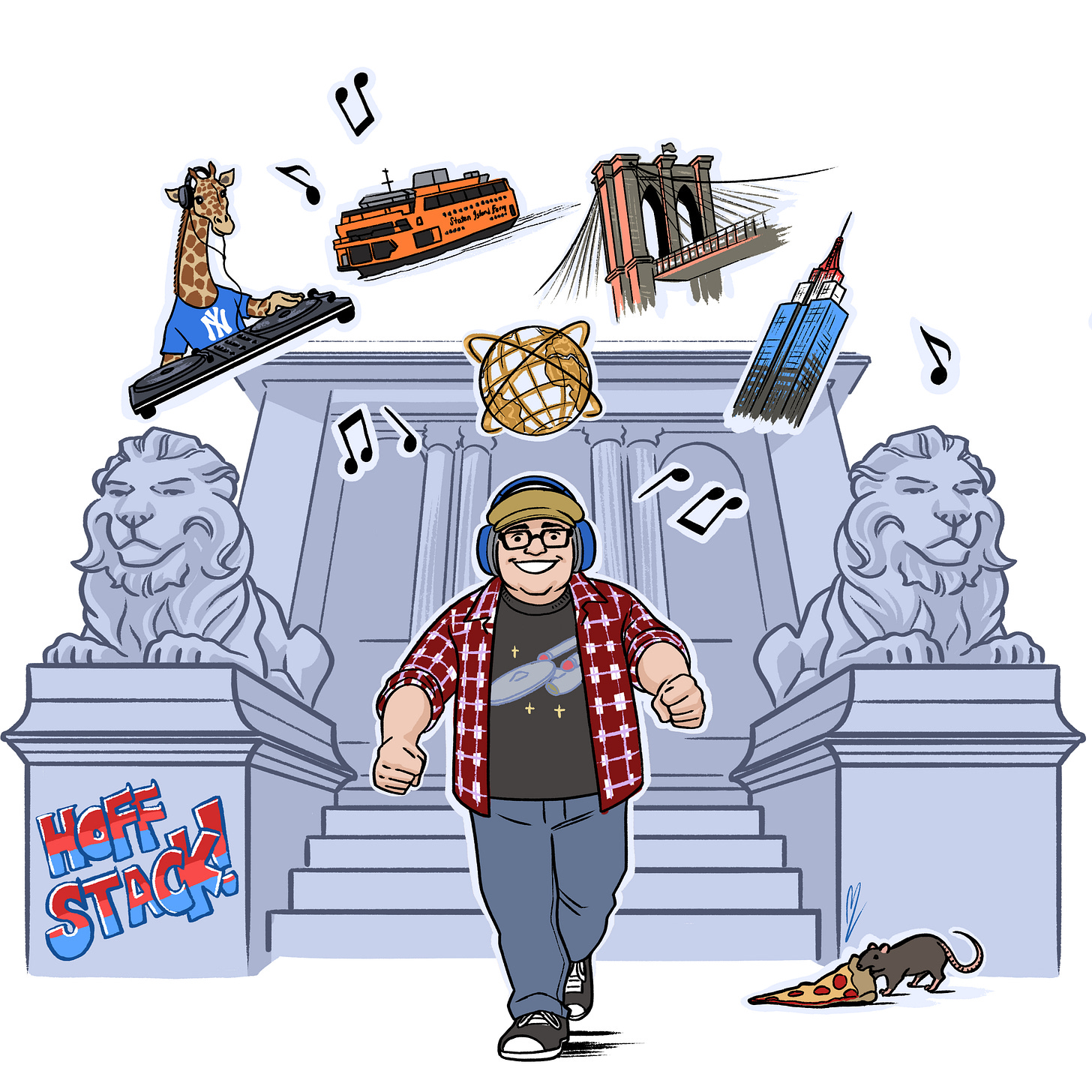Two Minor Observations Upon Rewatching 'Barton Fink' for the First Time in Twenty Years
I've taken a interest.
Earlier this month I was invited to speak at the Jacob Burns Film Center following a screening of Barton Fink (1991) in the appropriately named town of Pleasantville, New York. (Actually, I did not get to explore the town too much, but I did clock what appeared to be a very nice Cajun-style restaurant, and plan on giving it a try on my next visit.) While I do not do so as frequently as some of my colleagues, I often “present” or “introduce” classic movies at repertory theaters for a modest honorarium, but this was the first time I rolled up for one without rewatching the movie prior to that evening’s projection. Barton Fink is one of those movies that I’ve seen countless times.
I sat through the film with the JBFC crowd—a very engaged group of patrons, many of whom seemed to be chums. It’s a really nice spot, and I don’t understand why the Jersey Shore does not have an equivalent facility. Maybe, years from now, once Netflix has built up their Fort Monmouth studios we’ll see something like the Burns in Red Bank? One can dream. The theater that’s there now on White Street, while it certainly has its charms and was important to me as a lad, could use some improvements in terms of programming and facilities.
Barton Fink remains great and I don’t want to get into its whole purpose here. (You need to travel to Pleasantville to hear me do that, I suppose.) But there are two things I noticed that really grabbed me this time.
It’s not too hard to conceive of Inside Llewyn Davis (2013) as a Barton Fink story through a different prism. Both films concern egotistical, talented men having trouble connecting with their audience. (Actually, we have to take it on faith that Barton Fink is talented. We only hear a few lines of dialogue from his play. Anyone with ears knows that Llewyn Davis is talented.)
One of the funniest scenes in Fink comes toward the end, after he wakes up next to a dead body and is at the end of his rope. (Who wouldn’t be?!) Lipnick, the studio head, has summoned Fink to his mansion—he wants to hear the outline for the wrasslin’ scenario that Fink has been tasked to create. Fink has been avoiding such a confrontation for quite some time, but now his back is against the wall.
Out in the sun, wearing his ill-fitting and scratchy brown suit, unshaven, dazed and covered in mosquito bites, Fink sits opposite Lipnick in a terrycloth robe and swimming trunks pulled up high over his enormous gut, squeezing his gonads. Lipnick cues him: “I'm sitting in the audience, the lights go down, Capitol logo comes up. You're on!”
Fink holds for a minute (a good comedy minute), then takes a deep breath and says— mostly to himself—“okay.”
He’ll then use that moment to pivot to a phony “I never discuss my work while it is progress” position—a delaying tactic that infuriates Lipnick’s sycophant Lou, but Lipnick fully buys.
However, that moment: the moment of frozen confrontation between ARTISTIC JUDGE and ARTIST interrupted by a deep breath and an “okay” to the self will get a reprise from Joel and Ethan Coen 22 years later.
Llewyn Davis’s circular journey down the drain (to use a Barton Fink metaphor) takes him from New York City to Chicago in the dead of winter, for an appearance before Bud Grossman at the Gate of Horn. Unlike the man wishing to speak before the Law, Davis actually gets some face time with Grossman. (The Coens had already sung the Kafka song in A Serious Man (2009).)
And it’s the same exact beat. The intentions of the characters are different, but the scene is the same. Artist and judge sitting across from one another—suddenly he’s on, there’s a long pause, then finally, to himself: “okay.” Same moment!
Now, I don’t know if Joel and Ethan told Oscar Issac to mimic John Turturro. Or maybe Isaac did his own research and decided to play it that way. Or perhaps it is a total coincidence. But it is uncanny. It’s the same line reading, but flipped on its head.
Sadly, the pool scene from Barton Fink isn’t on YouTube, so you’ll have to trust me. But here’s the try-out scene from Inside Llewyn Davis, which is always worth watching again.
What’s remarkable to me is how these are mirror images. Barton Fink wants nothing more than to hide from Lipnick. Llewyn Davis seeks out Grossman. Fink has nothing to say. Davis has everything to say. Lipnick falls for Fink’s ruse, and hails him as a genius. Grossman, either for market-driven reasons or from sheer bad taste, witnesses Davis’s greatness and shrugs it off. “I don’t see a lot of money here,” probably the cruelest moment in the Coens’s entire oeuvre. Same set up, same “okay, opposite results.
The other funny thing that struck me watching Barton Fink again was during the big USO fight scene.
Barton Fink is the hero of the film and we’re sympathetic to him (Turturro rules in this), but, let’s face it, the guy is also a significant putz. He keeps braying about how in touch he is with the common man, but whenever Charlie says “I can tell you some stories” he blows him off. Also, he’s a whiner. Just write your goddamn wrasslin’ scenario, how hard could it be?
When he finally gets his masterpiece down on paper (which, when you’ve watched the movie enough times, you’ll recognize includes a lot of repurposed content from his play) he calls his agent back in New York in the middle of the night to declare his genius and then goes out to celebrate.
Here is when we realize that Fink is so stuck up his own ass he hasn’t noticed there’s a war going on. He finally loses his cool, yelling at the soldiers and sailors, claiming to be more important than they are because he is an intellectual. “This is my uniform!” he shouts, pointing to his own noggin’. He finally gets socked in the jaw, as is probably right.
But there’s something else. He calls himself “a creator.” In 1991, when I first saw this movie in theaters (I think it was the old Guild Theatre in Rockefeller Center, now an Anthropologie) this got a huge laugh. Who in their right mind could ever call themselves a “creator” with a straight face? Only an asshole like Barton Fink. Today? Well, times change.
***
A quick apology to the HOFFSTACK faithful waiting on another library update. It’s been a busy time. I actually have been using some of the city’s great library branches—I even took out a book, read it and returned it!—but I’ve been a little lax in getting some new surveys in. I hope to get back on that train soon.











The “I don’t see much money here” moment is rough, but the end of that conversation always got to me even more (and when I watched the movie again after a dear friend of mine had committed suicide I found it devastating):
Grossman: You comfortable with harmonies?
Llewyn: No. Yes, but no. No, I had a partner.
Grossman: Uh huh. That makes sense. My suggestion: get back together.
Llewyn: That’s good advice.
I really loved your comparison of the Llewyn Davis & Barton Fink scenes, and now I really want to read something longer of your thoughts on Barton Fink!
I completely forgot about the "creator" line and how it warranted a solid punch. When I hear people proudly proclaim it now, I am not sure that has changed.